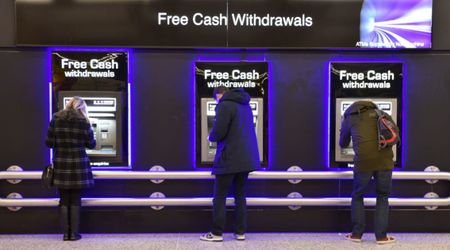Protect Your Digital Nomad Lifestyle With These Expert Tips

Cybersecurity Tips for Digital Nomads

In the United States, data breaches incur an average cost of $9.44 million, while cybercrime is projected to reach a staggering $8 trillion by 2024. This alarming trend poses unique challenges for digital nomads, who rely on technology to work remotely from various locations worldwide. From the vulnerabilities of public Wi-Fi networks to the ever-present threat of data breaches, these individuals are constantly exposed to cyber threats. To mitigate these risks and protect sensitive information, here are five essential cyber safety tips for digital nomads worldwide.
1. Use a Virtual Private Network (VPN)

One of the most effective ways to protect your online privacy and security while working remotely is by using a Virtual Private Network (VPN). A VPN encrypts your internet connection, preventing third parties from intercepting your data. It creates a secure tunnel between your device and the internet, making it difficult for hackers to eavesdrop on your online activities. When choosing a VPN provider, opt for reputable companies that offer strong encryption protocols and have a strict no-logs policy. Moreover, select VPN servers located in countries with robust privacy laws to ensure maximum protection.
2. Secure Your Devices and Networks

Digital nomads often work from a variety of devices, including laptops, smartphones, and tablets. Secure each device to prevent unauthorized access to sensitive information. Start by enabling encryption on all your devices and setting up strong, unique passwords for each account. It is important to regularly update your operating systems, applications, and antivirus software to patch known vulnerabilities and protect against malware. Furthermore, when connecting to public Wi-Fi networks, avoid sharing sensitive data unless you're using a VPN.
3. Practice Safe Browsing Habits

Browsing the web can expose you to various online threats, such as phishing scams, malicious websites, and social engineering attacks. To stay safe online, practice safe browsing habits, such as verifying website URLs before entering personal information, avoiding suspicious links and attachments in emails, and being cautious when sharing sensitive data online. You can also install browser extensions like HTTPS Everywhere and uBlock Origin to enhance your online security and privacy.
4. Implement Multi-Factor Authentication (MFA)

Multi-Factor Authentication (MFA) adds an extra layer of security to your online accounts by requiring multiple forms of verification to access them. Instead of solely relying on passwords, MFA prompts users to provide additional authentication factors, such as a one-time code sent to their smartphone or biometric data like fingerprints or facial recognition. By enabling MFA on your email, banking, and other critical accounts, you significantly reduce the risk of unauthorized access, even if your password is compromised. Moreover, many popular online services and platforms offer MFA as an optional security feature, so be sure to take advantage of it wherever possible.
5. Backup Your Data Regularly

Data loss can occur due to various reasons, including hardware failure, cyberattacks, and accidental deletion. As a digital nomad, your work and personal data are invaluable, making regular backups essential. Invest in a reliable cloud storage solution or external hard drive to backup important files, documents, and media. Set up automatic backups whenever possible to ensure that your data is continuously protected without requiring manual intervention. Additionally, consider encrypting your backups to add an extra layer of security and prevent unauthorized access to your sensitive information.
























